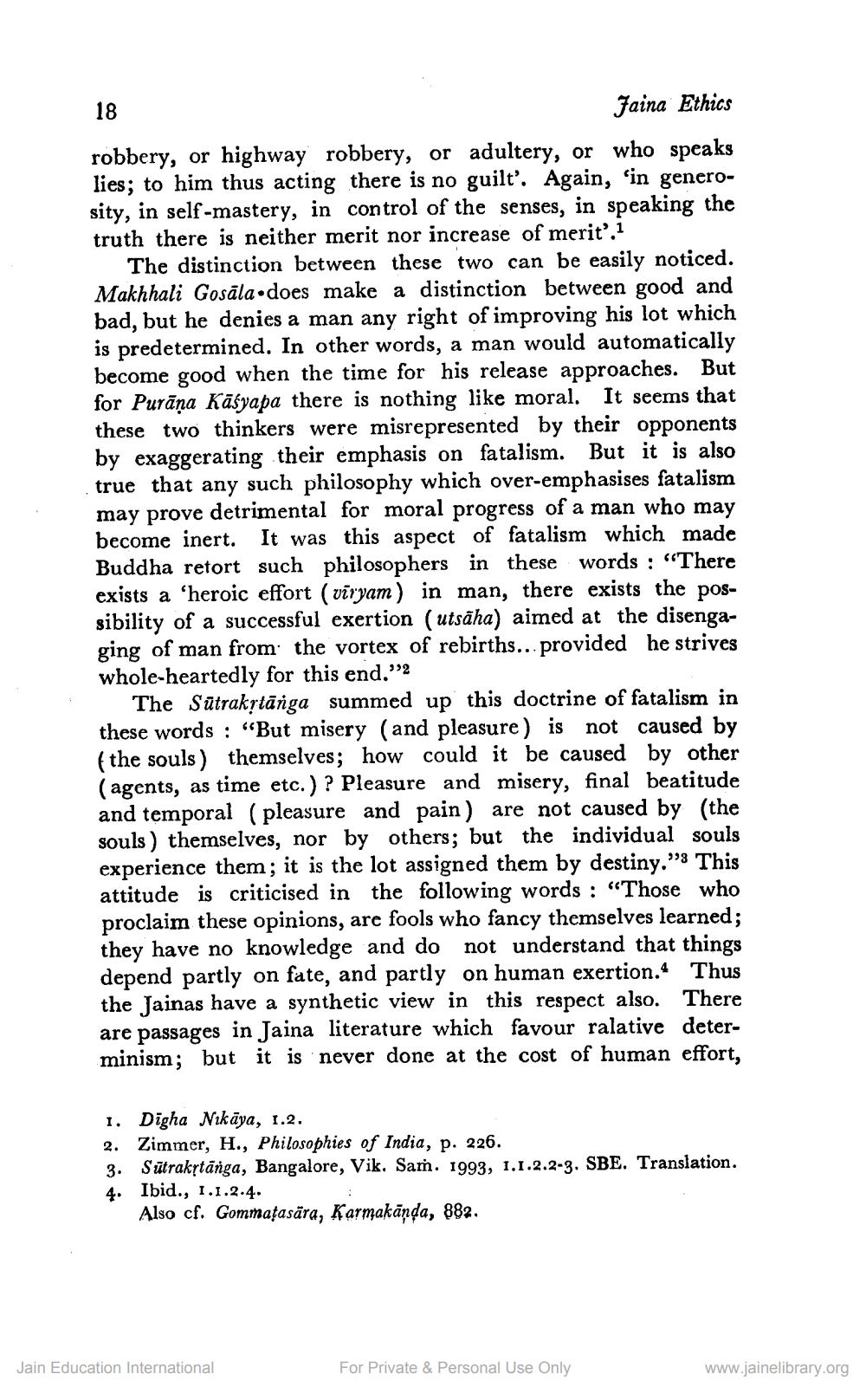________________
18
Faina Ethics
robbery, or highway robbery, or adultery, or who speaks lies; to him thus acting there is no guilt. Again, 'in generosity, in self-mastery, in control of the senses, in speaking the truth there is neither merit nor increase of merit'.1
The distinction between these two can be easily noticed. Makhhali Gosāla.does make a distinction between good and bad, but he denies a man any right of improving his lot which is predetermined. In other words, a man would automatically become good when the time for his release approaches. But for Purāņa Kāśyapa there is nothing like moral. It seems that these two thinkers were misrepresented by their opponents by exaggerating their emphasis on fatalism. But it is also true that any such philosophy which over-emphasises fatalism may prove detrimental for moral progress of a man who may become inert. It was this aspect of fatalism which made Buddha retort such philosophers in these words : “There exists a 'heroic effort (vīryam) in man, there exists the possibility of a successful exertion (utsäha) aimed at the disengaging of man from the vortex of rebirths... provided he strives whole-heartedly for this end."2
The Sūtraktānga summed up this doctrine of fatalism in these words : “But misery (and pleasure) is not caused by (the souls) themselves; how could it be caused by other (agents, as time etc.)? Pleasure and misery, final beatitude and temporal (pleasure and pain) are not caused by the souls) themselves, nor by others; but the individual souls experience them; it is the lot assigned them by destiny." This attitude is criticised in the following words : “Those who proclaim these opinions, are fools who fancy themselves learned; they have no knowledge and do not understand that things depend partly on fate, and partly on human exertion. Thus the Jainas have a synthetic view in this respect also. There are passages in Jaina literature which favour ralative determinism; but it is never done at the cost of human effort,
1. Digha Nikaya, I.2. 2. Zimmer, H., Philosophies of India, p. 226. 3. Sūtrakrtānga, Bangalore, Vik. Sam. 1993, 1.1.2.2-3. SBE. Translation. 4. Ibid., 1.1.2.4.
Also cf. Gommatasära, Karmakānda, 882.
Jain Education International
For Private & Personal Use Only
www.jainelibrary.org




